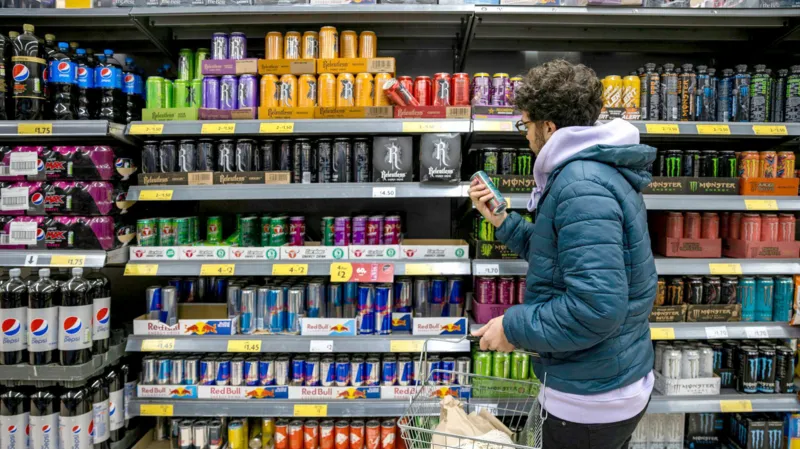The UK government is preparing to introduce a law that will prevent anyone under the age of 16 in England from buying energy drinks .
Energy drinks such as Red Bull, Monster, and Prime are those the ban would apply across shops, cafés, restaurants, vending machines, and online sales.
Research suggests that up to a third of children in the UK consume energy drinks every week, despite many supermarkets already operating a voluntary age restriction.
Read also: England resident doctors demand 29% pay rise amid renewed strike threats
Also, some products contain more caffeine than two cups of coffee, with excess intake linked to headaches, sleep disruption, rapid heart rate, and even rare cases of seizures and deaths.
Health and Social Care Secretary, Wes Streeting said the decision came after strong calls from parents, teachers, and young people.
Speaking to the BBC, he stressed the negative impact on children’s “health, concentration and learning that change with the times” and address marketing tactics aimed at young people, including social media advertising.
Sugary energy drinks also raise concerns around tooth decay and obesity, according to the Association of UK Dieticians. While tea, coffee, and lower-caffeine soft drinks such as Diet Coke are not covered by the proposed law, energy drinks containing more than 150mg of caffeine per litre already require a warning label under UK regulations.
The government will now launch a 12-week consultation to gather views from health experts, schools, the public, and the drinks industry. Although no date has been set, Streeting confirmed the ban would be introduced “well before the end of this parliament.”
Campaigners have welcomed the move. Carrera, 18, from youth activist group Bite Back, said manufacturers deliberately use colourful branding, influencers, and enticing flavours to appeal to children. “It’s no wonder energy drinks have become the social currency of the playground,” she said.
Celebrity chef Jamie Oliver has also long campaigned for action, describing children arriving at school “bouncing off the walls” after drinking cans packed with caffeine and sugar.
Health experts agree the measure is overdue. Prof Steve Turner, president of the Royal College of Paediatrics and Child Health, called the ban the next logical step in improving children’s diets.
Prof Amelia Lake of Teesside University, who has researched the drinks’ effects, said they had no place in young people’s diets.
The British Soft Drinks Association, however, urged caution, noting that manufacturers had already introduced voluntary restrictions. It stressed that any new regulation should be based on a “rigorous assessment of the evidence.”
Scotland, Wales and Northern Ireland are also considering similar bans.



